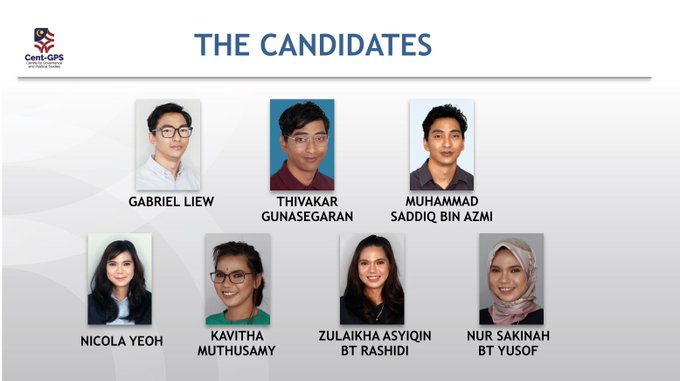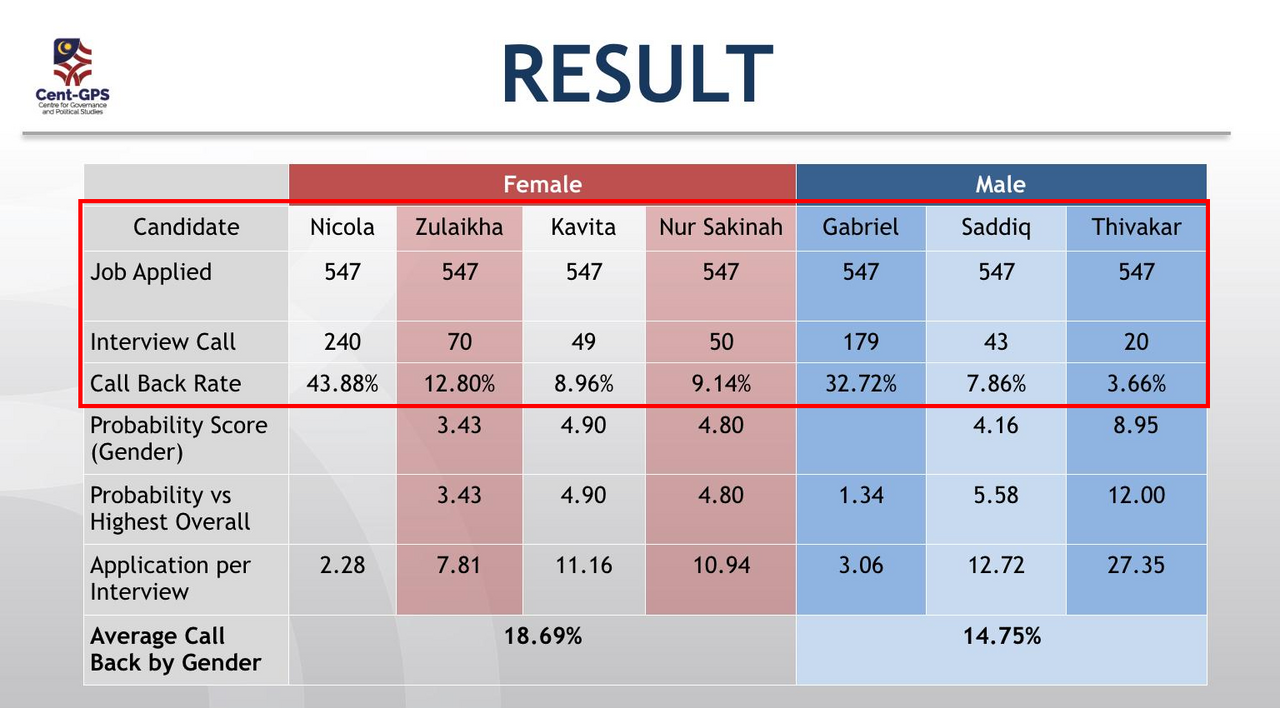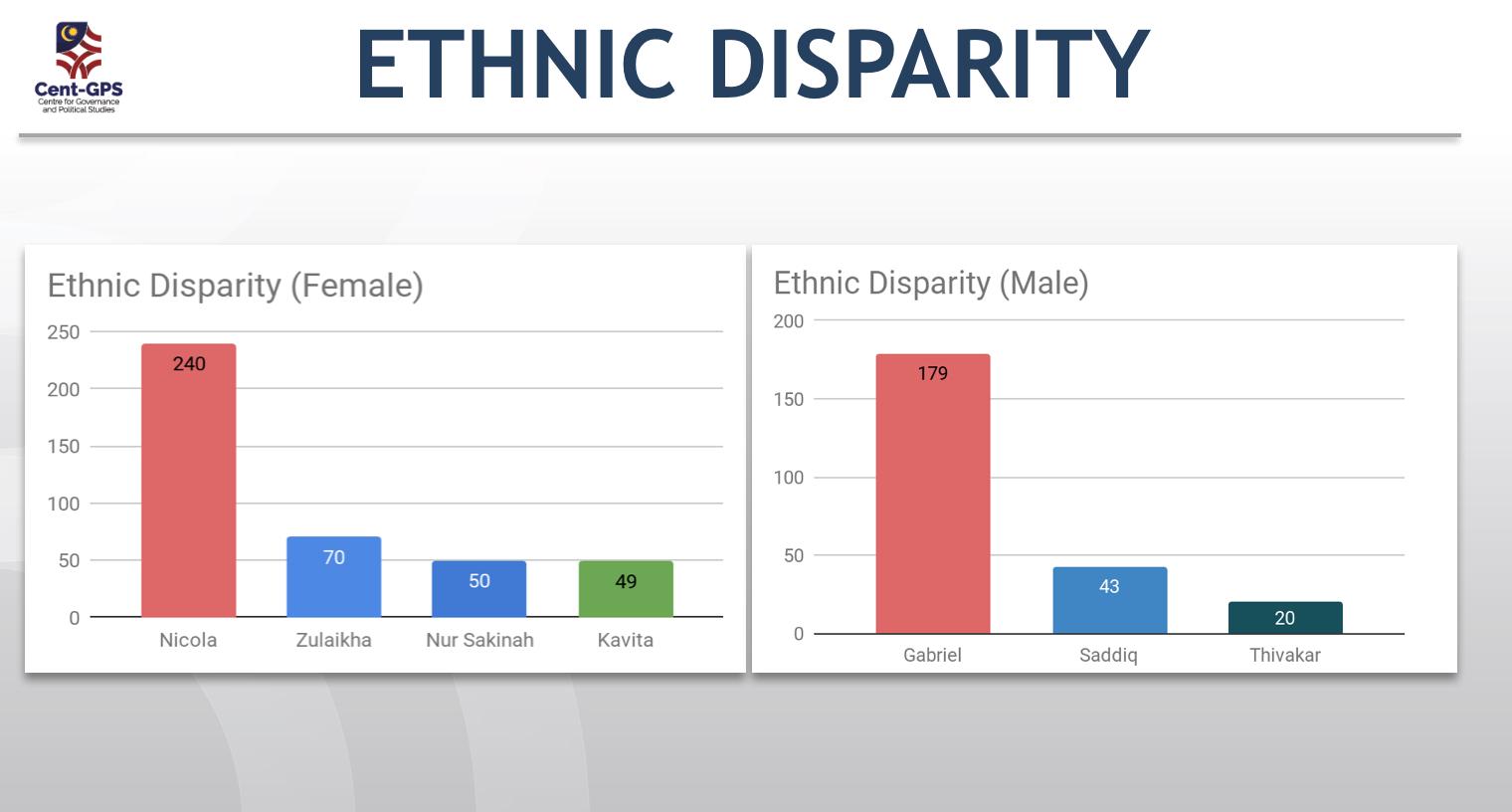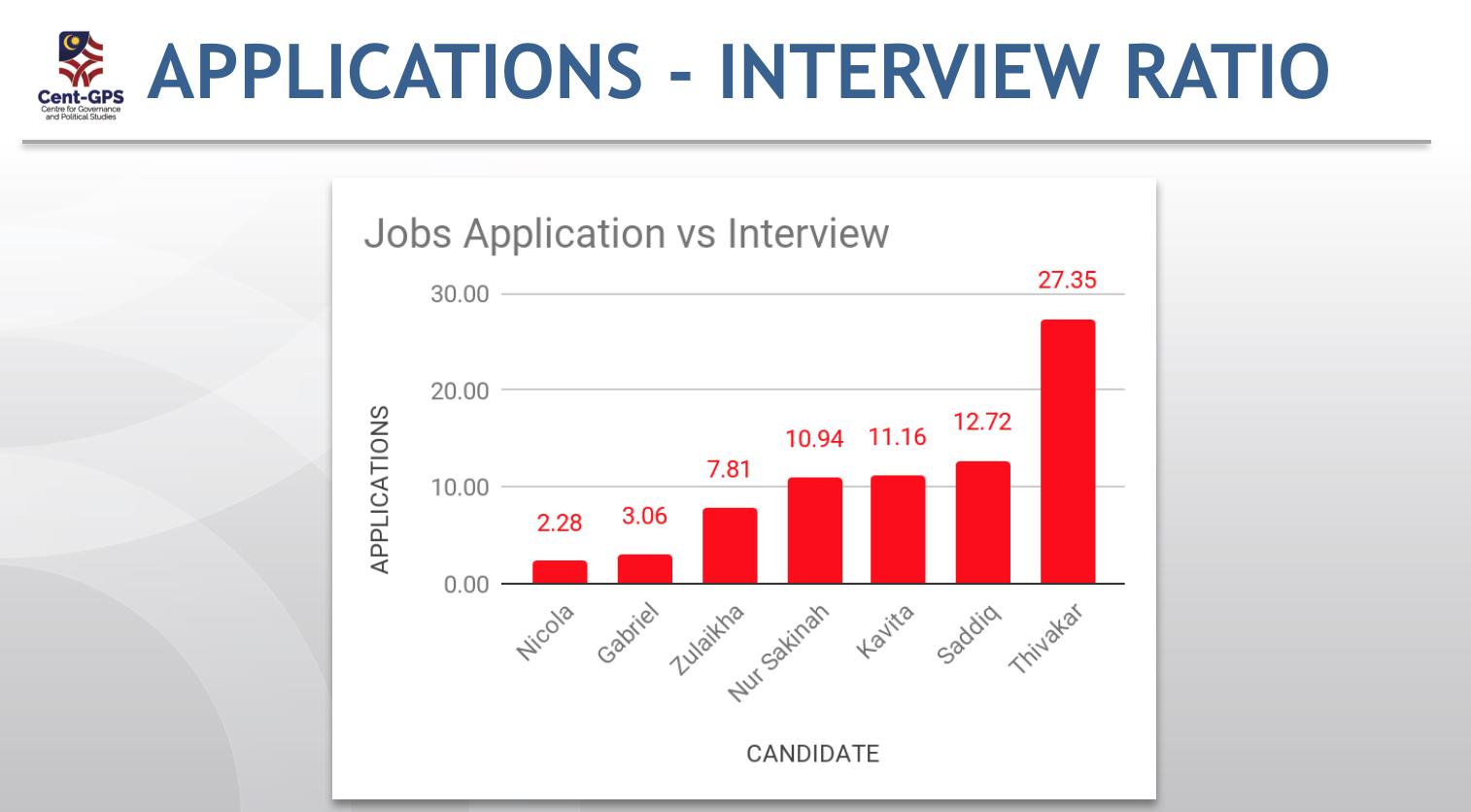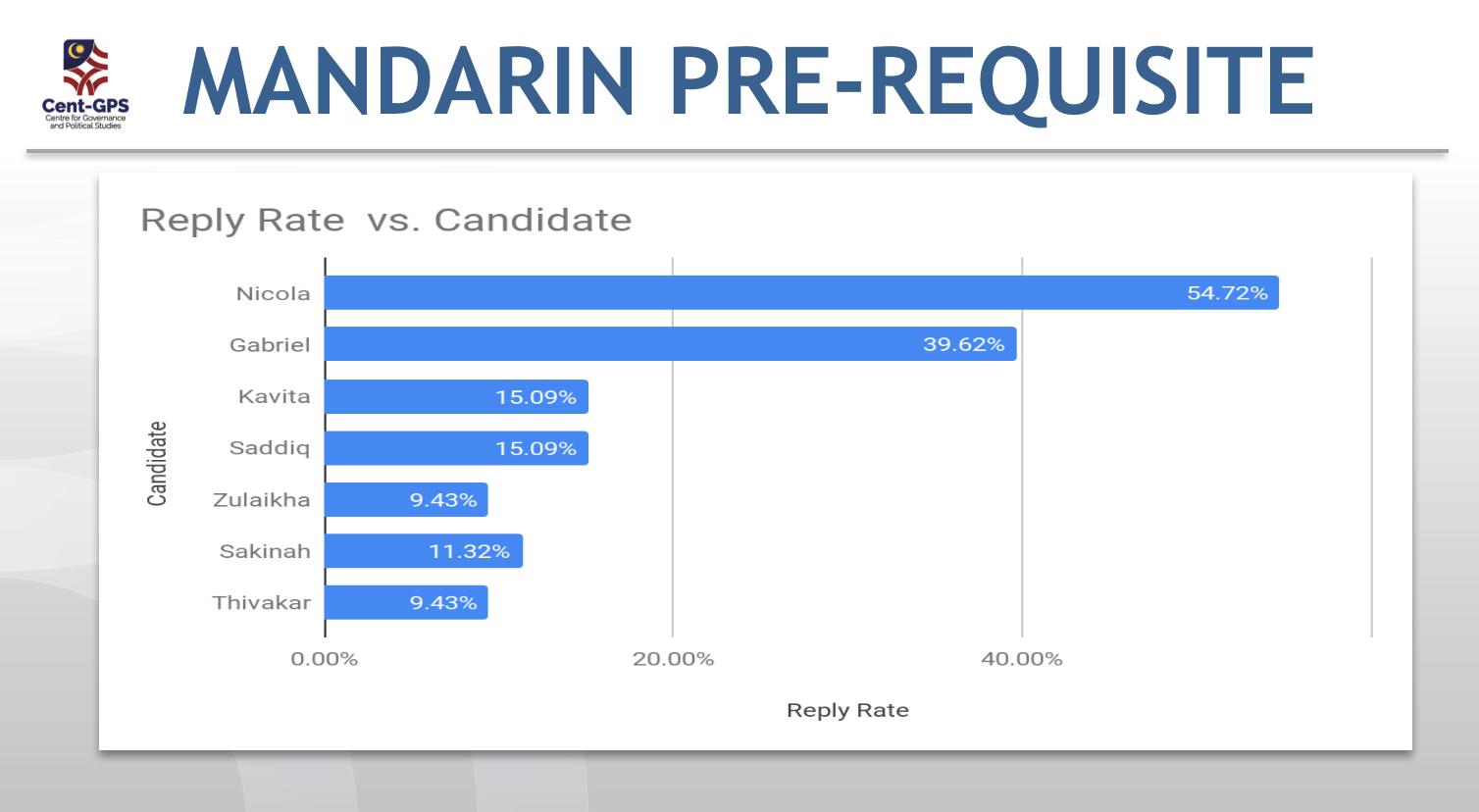We have muslim malay president chosen to lead Singapore.
What more Malays not happy about?
They should be delighted.
If you think malays was shortchange.
You should approach your leader halimah surely get helped
That is also an Indian, and chosen by eunuch loong, to toe the line. Essentially to be the scapegoat everytime anything goes wrong.
Malaysia provide vernacular education, MCA, MIC, DAP other chink/ceca exclusive political party, representation in parliament, media, jobs etc
all favour chinks
still slanties can dare complain
while it's proven
fact that not only in stinkypura with chink majority but even in malaysia with chink minority, it's the chinks who are favoured for employment
seen in anonymous resumes sent with melayun name, chink name, ceca ah neh name but all other characteristics remained mostly unchanged
fake chinks received most responses
Survey: Malay, Indian jobseekers likely to face discrimination
Thursday, 07
Mar 2019 12:10 PM MYT
By Syed Jaymal Zahiid
Cent-GPS researcher Zaidel Baharuddin speaks about the result of a recent survey entitled ’Racism in Recruitment: Racial Bias For Entry Level Jobs’ March 7, 2019. — Picture by Choo Choy May
KUALA LUMPUR, March 7 —
Malays and Indians are more likely to experience discrimination when applying for jobs in the private sector, especially men of the two ethnicities, a survey by a think tank found.
The Centre for Governance and Political Studies said its study concluded that Malays and Indians face more hurdles to secure job interviews compared to Mandarin-speaking Chinese applicants who topped all callback rates from hiring companies.
The survey was an experimental study in which Cent-GPS
researchers posed as seven different applicants from all three major ethnic groups, but with the same qualifications and other criteria deemed necessary to make them prime candidates.
stinkypura obviously faaaaaar worse
Survey: Indians and Malays feel discriminated against in job applications in Singapore
Wednesday,
July 31st 2019
According to a survey conducted by the Institute of Policy Studies and OnePeople.sg, a national body for inter-racial and inter-religious understanding in Singapore, a large number of Malays and Indians in the island nation feel discriminated against while applying for jobs.
The findings of the paper titled IPS-OnePeople.sg Indicators of Racial Religious Harmony: Comparing Results from 2018 and 2013 were released on Tuesday.
According to the report, 73 per cent of Malays and 68 per cent of Indians felt that they had experienced discrimination when it came to applying for a job - a figure that has increased since 2013. In contrast, only 38 per cent of Chinese expressed the same sentiment.
Courtesy: Institute of Policy Studies, Singapore
This may partly be due to greater awareness of the presence of discriminatory behaviour in the workplace and how this might have affected some minorities, researchers Mathew Mathews, Leonard Lim and Shanthini Selvarajan said in the paper.
Courtesy: Institute of Policy Studies, Singapore
In total, 4,015 Singaporeans and permanent residents were polled on issues ranging from aspects of their racial and religious identity, to their experiences of living in a multi-racial society, and their attitudes towards social and political issues.
Courtesy: Institute of Policy Studies, Singapore
One People.sg has said that it will work with employers through the Singapore National Employers Federation, and the Tripartite Alliance For Fair and Progressive Employment Practices (TAFEP) - to address racial discrimination at work.
what's worse is stinkypura is a one party state
with no protests no demonstrations permitted, not even more than 5 people congregation in public
dynastic one party rule eunuch brigade cronyism nepotism kleptocracy plutocracy
with 160th media
nothing like malaysia whatsoever,
even within such constraints, the truth some times seems to gush out no matter how repressive pap-pigs policies might be
Singapore’s Malay Dilemma
They continue to be left out of the island republic’s prosperity
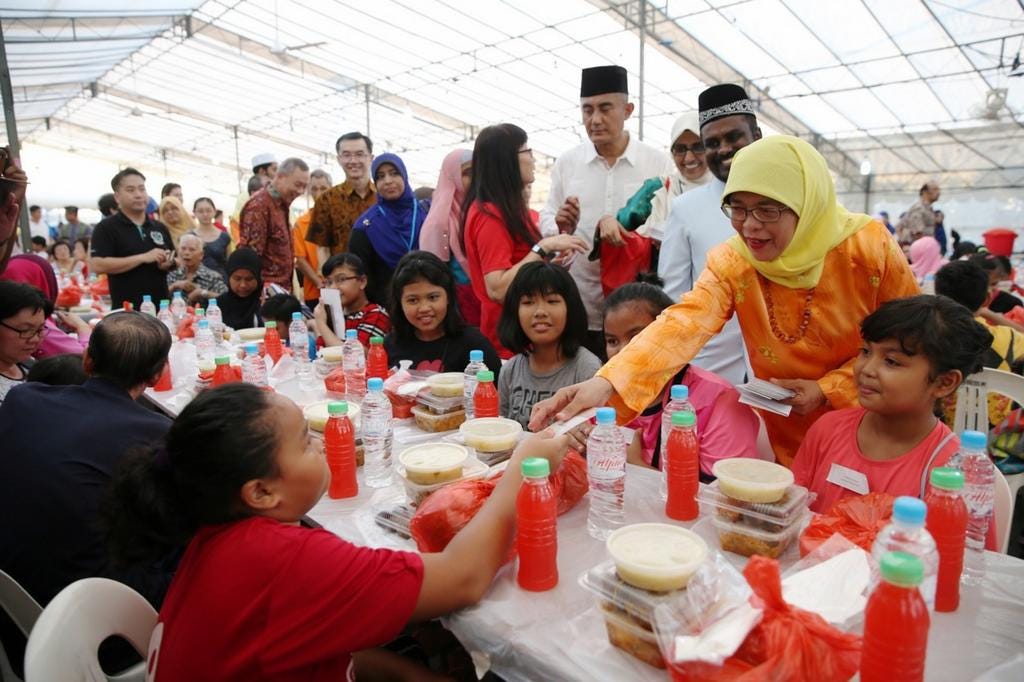
By: Murray Hunter
There has always been a feeling among Singapore’s
ethnic Malays that they are second-class citizens within their own land. The government’s endless pursuit of building a strong sense of a Singaporean national identity has come up short within the 750,000-odd Malays who make up 13.5 percent of the population.
A paradox of communal introspection exists, a cognitive dissonance between being a Malay and being a Singaporean. However, this remains largely unspoken about today, particularly among the younger generation.
The Singaporean constitution recognizes the special position of the Malays, who are officially defined as the indigenous people of Singapore. This section also gives the government the responsibility to protect, safeguard, support, foster, and promote their political, educational, religious, economic, social and cultural interests, and their language.
Although Malays have progressed with the growing affluence of Singapore, Malays still earn 25 percent less than the national average, lagging far behind ethnic Chinese and Indians. Malays are still participating in higher-education below par with the rest of the Singaporean population, leading to a great under-representation within the professional classes, elite government positions, armed forces and police. Malays have a much higher incidence of obesity, hypertension, diabetes, heart conditions and other fatal diseases, than the rest of the population.
What’s more, Malays have been blamed for this in the public media as having a cultural deficit, being stereotyped as undertaking unhealthy cultural practices.
They suffer discrimination in hiring, are the first group laid off due to business shutdowns from Covid-19 restrictions, are over-represented in crime, drug abuse and the prison population. Even with their status protected by the constitution, Malays are seriously hindered by regulations restricting the operation of traditional small-scale business enterprises (
Niaga kecil/gerai) from home. Consequently, the incidence of social and economic poverty in Singapore falls primarily on ethnic Malays, with a prevailing sense of anguish within the community.
The constitution states that there shall be no discrimination against citizens of Singapore on the basis of religion, race, descent or place of birth in any law or in the appointment to any office under a public authority or in the administration of any law relating to the acquisition, holding or disposition of property or the establishing or carrying on of any trade, business, profession, vocation, or employment.
However, the government’s ethnic integration program (EIP) and Housing Development Board (HDB) policy of allocating apartments within estates to reflect the multiracial composition of Singapore society has totally ignored the cultural context of the Malay
kampong. This sense of community, a pillar of Malay culture, has been totally destroyed.
Racial marking within HDB estates has institutionalized ethnic identity, leading to discrimination. This has brought restrictions upon Malays buying and selling apartments in HDB estates, effectively marginalizing them within the housing market.
Within the Singapore Armed Forces discrimination is blatant. In 1987
Lee Hsien Loong, then second minister of defense, said “if there is a conflict, if the SAF is called upon to defend our homeland, we don’t want to put any of our soldiers in a difficult position where the emotions for the nation may come into conflict with his emotions for religion, because these two very strong fundamentals, and if they are not compatible, then they will be two very destructive forces in opposite directions.”
In 1999, Lee Kwan Yew himself echoed the same sentiments about the conflict of interest Malays might have if Singapore was in conflict with Malaysia. However, Singapore’s Malays had a long tradition of service in the armed forces under British colonial command. Removing them from combat positions into logistics and administration has been very difficult to accept. Subtle methods like using Mandarin at higher ranks act as steep barriers to entry for Malays. This feeling of mistrust erodes any sense of national unity and true Singaporean identity. Malays are deeply dissuaded from pursuing any career within the armed forces.
This is a stark contradiction to claims of meritocracy in government.
It’s not just within the armed forces.
Many Malays feel discriminated against within the general workforce according to repeated workplace surveys that have found around three-quarters of them feel ignored when applying for jobs. Many say that education,
language proficiency (i.e. Mandarin speakers required) and
race are negative attributes in job interviews. The organization
One People.sg has argued that not enough has been done through employers to address the issue, a major area the government needs to focus upon.
The
ban on the wearing of head scarfs or hijabs, is regarded as
discriminatory against Malay culture and
religion. Despite that, protests and petitions on the ban at government workplaces and schools over the last decade have gone unheeded. This issue led to a
backlash against the Singapore mufti, or Islamic jurist,
who was perceived as appeasing the official government line, rather than taking an Islamic stance on the issue. The Malay community has perceived the government to stand as chauvinistic, as the wearing of the hijab is totally acceptable in many other non-Muslim country civil services and uniformed services around the world.
The Majlis Ugama Islam Singapura (MUIS) is given power by the constitution is the consulting council to advise the president of Singapore on matters regarding Islam, the religion of ethnic Malays. However, the members of the board are appointed by the government, rather than being directly elected by Singapore’s Islamic community.
As Asia Sentinel has reported, there is currently a
major inquiry going on concerning corruption within the body’s halal certification operations. In addition, there have been criticisms about the way MUIS has handled Wakaf (donated) property zakat, and Haj cancellations and refunds. The
Auditor General’s report uncovered financial mismanagement and interest payments (
riba) prohibited under Islamic law used within organizational financial operations. An outpouring of social media posts shows Singapore Muslims’ trust in MUIS is waning amid
calls to make MUIS an independent body.
One of the recent and most controversial issues is the position of the president of Singapore, held since 2017 by the long-serving PAP politician and lawyer by profession Halimah Yacob. With the new powers given to the office of president, PAP stalwarts argue that ethnic Malays now have power within the government. However, executive government in reality makes all major decision. The office is still primarily a ceremonial position. Halimah is only the second Muslim to become the president since Singapore became an independent state in 1965. Many ethnic Malays
feel that they have been patronized, not seeing any reforms under her reign.
One of these issues is a proposal to teach Bahasa Malay in primary schools, as Malay is the national language and language of Singapore’s national anthem. Inaction has brought rebuke against the president and Malay MPs representing their community, leading to accusations from
Malays Underrepresented in Singapore (MUIS) that the representatives are just puppets of the governing People’s Action Party.
There is only one ethnic Malay serving in cabinet, and one in the ministry, while representation within the judiciary and upper echelons of the civil service is far below the ethnic Malay proportion of the population. Criticism is rife about Malay leaders not engaging with the community and speaking up on Malay issues.
An initiative recently announced by Zulkifly Masagos Mohmad, the Minister for the Environment and Water Resources, is a planned program to be led by the minister of state for manpower and national development Zaqy Mohamad, called Ciptasama@M3 to supposedly encourage the community to participate in policymaking. However,
an explanation of the program indicates that it plans to focus on issues such as marital problems, support for families of former prisoners and mentoring youths with agencies such as MUIS,
MESRA, and
MENDAKI, rather than directly with government. This looks more like an outreach set of programs than policy consultation with the ethnic community.
Singapore has been socially engineered by government to reflect the core beliefs of top leaders over the past six decades. In 1990, although Singapore celebrated its 25th anniversary with the slogan “One people, one nation, one Singapore,” the government implemented a new national ideology that stressed the core values of Confucian morality, family loyalty, and placing the nation before oneself. This was a turning point away from multi-culturalism and towards a form of Chinese chauvinism that made Malays feel insecure.
There is, however, a very small group of elite and successful Malays who have ostensibly succeeded under Singapore’s meritocracy system. As part of the professional elite, they can network with the decision-makers within society, having thrown away the mental shackles of Malay customs to project a pan-Singaporean persona of professionalism. They are the pinup heroes for the cause of meritocracy promoted by the PAP.
The potential to advance themselves requires compromise by the government or sacrifice by ethnic Malays. Malay heritage within the armed forces, police, and civil service has been taken away from them. The kampong has been destroyed and scattered, with traditional business opportunities put out of reach. 9/11 and the rise of ISIS have only made things more difficult for as the security services watch the community closely. The stereotypes have not been broken by a Muslim president. Further, their position in the country’s ethnic mix is being quickly eroded due to immigration. After almost 60 years, Malay loyalty to Singapore is still in doubt by the government.
A number of Malays have emigrated from Singapore to countries like Australia, to become very successful in their professions or business. They have embraced their Malay identities and played major roles in organizing local Malay communities in their adopted countries, as great loss for Singapore.
The feelings about these issues are best summed up by Singaporean poet Alfian Sa’at’s words:
“Singapore you are not my country”:
“Your words are like walls on which truth is graffiti
This has become an island of walls
Asylum walls, factory walls, school walls, the walls of the midnight Istana.”
A request to the minister Masagos and his press secretary for an interview has gone unanswered. Lee Hsien Loong as deputy prime minister said back in 2000 that “There is no policy too sensitive to question, and no subject so taboo that you cannot even mention it.” There are many who want to discuss the Malay quandary in Singapore, but fear to do so.






